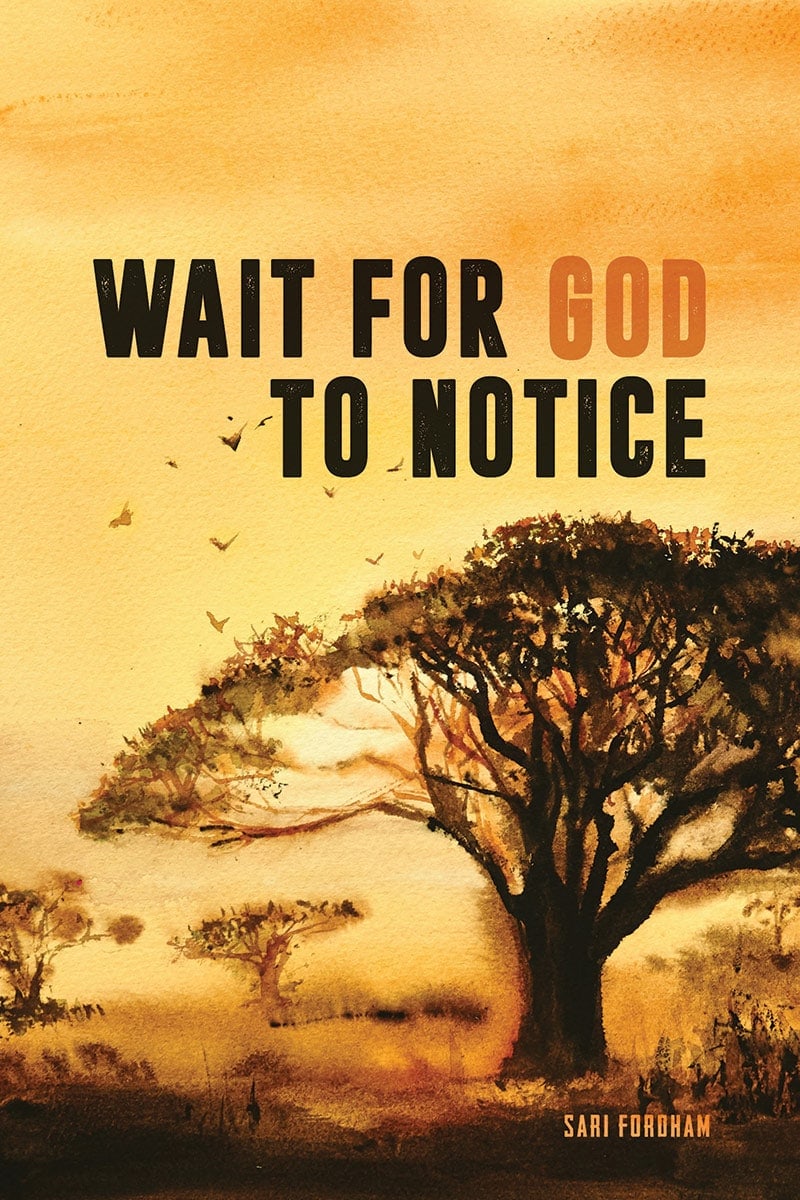
 Wait for God to Notice
Wait for God to NoticeWhen I was in elementary school, the tiny library of our tiny church school was always well stocked with missionary storybooks. We could check those out to our hearts’ content. As I was an avid reader on the hunt for Sabbath books to kill the boredom of after-church afternoons as my parents napped, I often checked those out. Many of them told tales of lives and times I didn’t always understand. The stories were often difficult to relate to because of the country and conditions depicted, or the fact that many were written in the 1950s and 1960s and I was a 1980s kid. But the stories all had common themes: sacrifice, adventure, hardship, and God’s power to triumph over odds.
Sari Fordham’s debut memoir combines all those things but wrapped up in a package that Adventist Gen Xers (and others, of course) can easily relate to—right down to lyrics from the Heritage Singers kids’ album (I had that on eight-track, thank you very much).
The Fordham family lived in Uganda during the dictatorship of Idi Amin. Her story of being left without their father (on a work trip) when a soldier came to their home and her mother did her best to protect her girls (and everything in the house) is alarming. There are tales of journeys on dirt roads, the constant threat of poisonous snakes living too close for comfort, bouts with malaria, needed medicines not easily available, meager meals of whatever the garden produced while missing foods from “home,” etc. Fordham’s way of effortlessly weaving these anecdotes into a narrative that speaks of both quiet faith and devotion to a mission larger than themselves represents strong and beautiful writing.
Any missionary child who returned to their home country feeling foreign will resonate with Fordham’s recollections of that painful transition. Her descriptions of the angst of joining a new school and trying to make new friends, learning to dress in the latest fashions, frantically trying to learn popular culture so as not to appear more out of place than they were, are as endearing as they are difficult.
Though she was a very small child while living in Africa during tumultuous times in the late 1970s, the family’s time in mission service there left an indelible mark on the very framework of Fordham’s life. And her longing to return prompted her to accept employment with ADRA in the field.
This is a special kind of missionary book—one that blends the harsh realities of foreign mission service with deep love and an unapologetic openness about certain nuances of Adventist culture. Given that this book was published by a non-Adventist press and is available to a market well beyond Adventist Book Centers, Fordham is serving the world a well-crafted memoir that not only entertains but shares light and truth about a type of life that most may never encounter otherwise. I highly recommend this book to anyone nostalgic for missionary tales, those with wanderlust for other countries and cultures, and historians interested in life under the shadow of a well-known dictator.